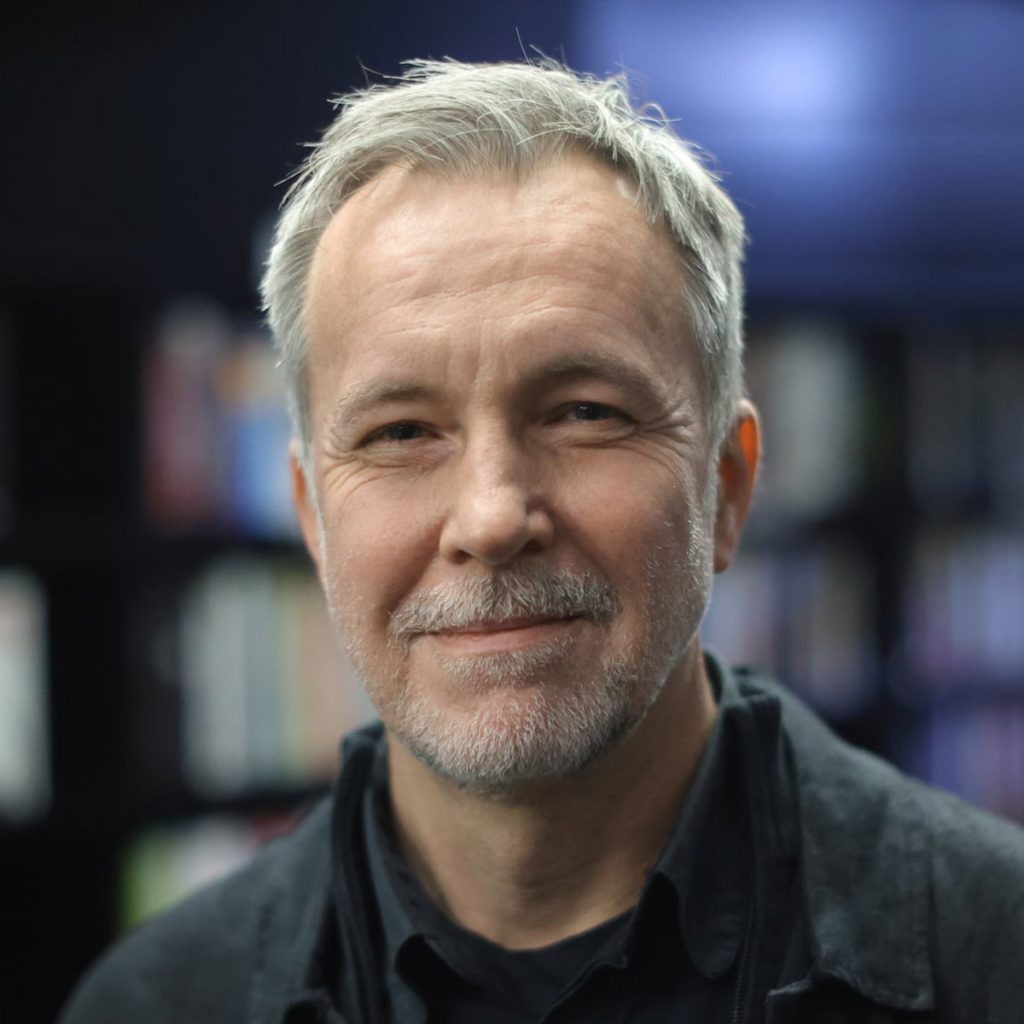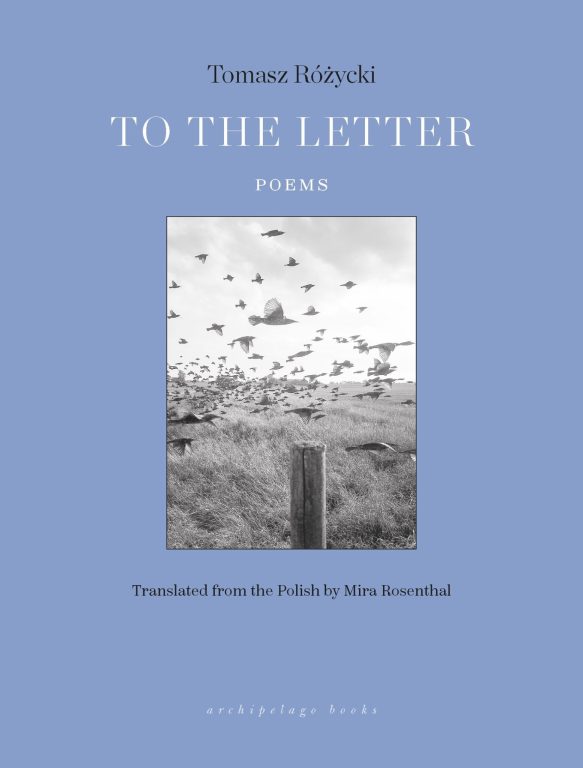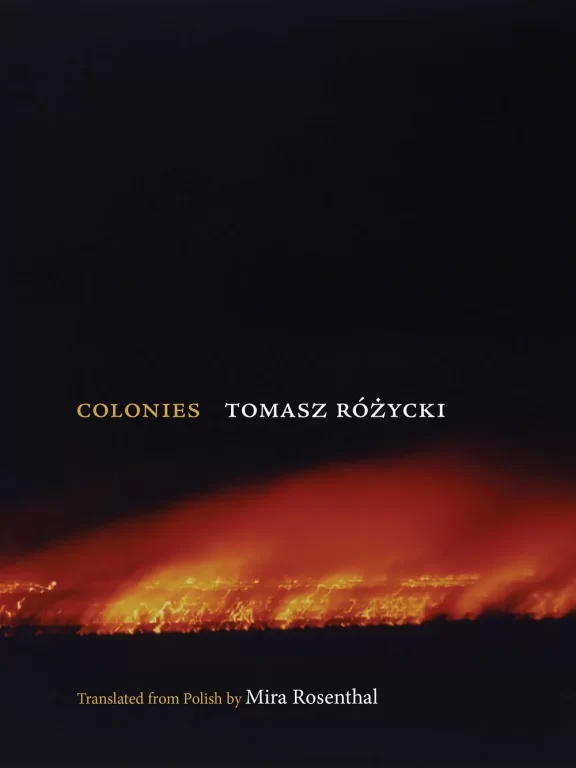
Tomasz Różycki is a poet, critic and translator who lives in the Silesian city of Opole in southwestern Poland with his wife and two children.
He is the author of over a dozen books of poetry, fiction, and essays, including the Koscielski Prize-winning epic poem Dwanascie Stacji (Twelve Stations, 2004) and the sonnet cycle Kolonie (Colonies, 2006), both of which were nominated for Poland’s most prestigious literary award, the NIKE.
His many other awards include the Wislawa Szymborska Prize, the Rainer Maria Rilke Prize, the Josif Brodski Prize, the Czechowicz Poetry Prize, the 3 Quarks Daily Prize in Arts and Literature, and the DAAD Artists-in-Berlin Fellowship. Różycki is an “Ambassador of the New Europe” and one of the leading writers of his generation in Poland. His work has been translated into numerous languages, including English, French, Slovak, Italian, German and Serbian.


- 2024
- 2014
Judges’ Citation
In Mira Rosenthal’s translation of this work, English-speaking readers can themselves confront the sonnet as something supple, fresh and a little bit strange. Rózycki’s quirky and self-deprecating humour permeates the poems.
The sonnet, or ‘small song,’ arose in 13th-century Italy. It was successfully transplanted into English, through the supple voice of Thomas Wyatt, well before the birth of William Shakespeare. In Eastern Europe, however, the sonnet flowered much later. In Polish in particular, when it finally appeared, it met both popular acclaim and stiff-necked critical resistance. So the sonnet in Polish is, or can be, even now, a contentious and lively form. Tomasz Rózycki’s sonnet sequence Kolonie (Colonies), first published in Polish in 2006, demonstrates this clearly. In Mira Rosenthal’s translation of this work, English-speaking readers can themselves confront the sonnet as something supple, fresh and a little bit strange. Rózycki’s quirky and self-deprecating humour permeates the poems. So does his sense of the fundamental homelessness of 21st-century human beings. Nine of these 77 sonnets begin with some variation on the line ‘When I began to write, I didn’t know …’ and blossom into wry and hilarious reflections on the writing life. Others exude a heart-rending nostalgia for a world that is constantly being translated from meaning into money, and thus constantly destroyed.
Selected poems
by Tomasz Różycki
When I began to write, I didn’t know
who would be waiting for it. In the window,
a curtain hangs unmoved, a mess spreads on the floor:
loose change, CDs, an unmade bed, the entrails
of night. Signs of a struggle, deserted.
Someone left traces on these cups, this carpet,
someone bled out from self-inflicted wounds,
signed his name backwards, backwards. At this mirror,
a face, a face bit someone, a world leapt
from the other side, whole, identical
but in reverse. It occupied the best
places tonight and settled back to rest,
and no one sees it’s false. Winter comes slowly,
frost pricks the window, pricks it and draws blood.
Copyright © 2013 by Mira Rosenthal, translated from the Polish written by Tomasz Różycki, Colonies, Zephyr Press
Cannibals
the Polish written by Tomasz Różycki
Since it is lucky you are strange and I
am strange, together we will shock the world.
Families strolling by will stare and point,
and we’ll be famous, quite mysterious.
They’ll even make up complicated plots
in films about us, all untrue. At night,
in mid-December, we will find ourselves
a hiding place where we’ll make love and have
no other worries. We were meant to meet
in such a huge world, we are singled out
by language. Stick out your tongue for me, kitten.
I’ll tell you a story. Luckily we’re
together now, but language will betray us
and kill our world, turn it to dew and ash.
Copyright © 2013 by Mira Rosenthal, translated from the Polish written by Tomasz Różycki, Colonies, Zephyr Press
Creoles, Mestizos
the Polish written by Tomasz Różycki
And if you do exist—say it—are you not living
somewhere inside of me at times? Unfurling like fungus,
a lump, a foreign body, cosmic cancer, stardust,
from day to day, from year to year, invading
my territory, seizing land, inciting a coup
one day at dawn in winter. Then you’ll rule
with absolute power inside my body thanks to
advancements in conversion surgery to morph into
your likeness, which means nothing, right? If you exist
you are an enemy within, my own antithesis,
an agent, saboteur, and every night you ingest
another bite of me, am I right? It’s no coincidence
that every morning in the glass I see more traces
of pretense creeping in and diagnose my face
as having someone else’s features, wrinkles, grit,
a foreign sentence added, but not in my own script.
Copyright © 2023, Mira Rosenthal translated from the Polish written by Tomasz Różycki, To the Letter, Archipelago Books
Features
the Polish written by Tomasz Różycki
To Barbara
How lightly we live! Just beyond the horizon
an old volcano, thought inactive, lets off smoke.
They tell us time’s about to burst, same as before,
neighbors are packing, they’re closing the roads,
we wake to find signs painted on our doors,
but we keep living lightly. Time so many times
would’ve caught us but couldn’t, we kept changing form.
When time surged forth like lava, we became outlines,
when it blew up, we crawled into the earth,
when it turned trainlike, we became ash cloud,
when it turned sniper, we became but breath,
a feather above the rubble heap, a voice calling out
for the kids to come home. We’re the letter excised
from a verdict already passed. The slow dance of flecks
when furniture is moved, the joyful subsiding
of dust as it falls, we are the star of its journey.
Copyright © 2023, Mira Rosenthal translated from the Polish written by Tomasz Różycki, To the Letter, Archipelago Books
Metamorphoses
the Polish written by Tomasz Różycki
I took a trip to Ukraine. It was June.
I waded in the fields, all full of dust
and pollen in the air. I searched, but those
I loved had disappeared below the ground,
deeper than decades of ants. I asked
about them everywhere, but grass and leaves
have been growing, bees swarming. So I lay down,
face to the ground, and said this incantation —
you can come out, it’s over. And the ground,
and moles and earthworms in it, shifted, shook,
kingdoms of ants came crawling, bees began
to fly from everywhere. I said come out,
I spoke directly to the ground and felt
the field grow vast and wild around my head.
Copyright © 2013 by Mira Rosenthal, translated from the Polish written by Tomasz Różycki, Colonies, Zephyr Press
Scorched Maps
the Polish written by Tomasz Różycki
At night three elements enjoy our bodies.
Fire, water, air. One moment you’re water
then air the next, but flame encircles all.
At night we are reduced, small bits of tar,
soot on our skins, in cups. A storm enters
the room and clouds the mirror. There are others
from far away who look on us as food,
they eat and drink. They find each orifice
and enter us. Our bodies then become
the final element of earth and turn
to ash, dust, coal, compost where insects live
and snails leave tracks you ask about at dawn.
Once, at the world’s end, I threw a stone into
the open mouth of hell; I can’t complain.
Copyright © 2013 by Mira Rosenthal, translated from the Polish written by Tomasz Różycki, Colonies, Zephyr Press
The Storm
the Polish written by Tomasz Różycki